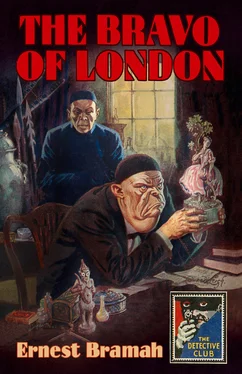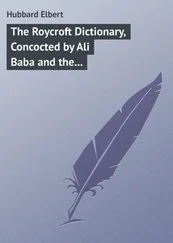In all, Max Carrados would appear in 26 short stories, including A Bunch of Violets , the only story about the blind detective not included in any of the three collections of Carrados short stories published in Smith’s lifetime. As well as the detective, Smith’s stories about Carrados feature some economically drawn but memorable characters: these include his amanuensis, Parkinson, who has an eidetic but erratic memory; the self-described ‘pug-ugly’ Miss Frensham, once known as ‘The Girl with the Golden Mug’; the brilliant ‘lady cryptographer’ Clifton Parker; and the detective’s school-friend Jim ‘Earwigs’ Tulloch. Moreover, the Carrados stories often feature contemporary concerns like Irish and Indian nationalist terrorism, the perils of Christian Science and the struggle for universal suffrage. Nonetheless, despite the stories’ merits, Carrados’s hyper-sensory brilliance can sometimes appear unconvincing, no more so than in ‘The Tilling Shaw Mystery’ when he is able to detect, by smell and taste, traces of whitewash on a cigarette-paper after it has been used as wadding and fired from a revolver.
During the First World War, in 1916, Smith enlisted in the Royal Defence Corps. This led to his writing non-fiction pieces for Punch and various other magazines on subjects as diverse as censorship and the military use of animals. When the war ended, Smith went back to journalism proper, writing a steady flow of short stories and articles, a book on British copper coinage in the sixteenth to nineteenth centuries and a comic fantasy, the novel A Little Flutter concerning a middle-aged city clerk’s unusual inheritance and the fate of a Groo-Groo, a giant Patagonian bird. Smith later adapted A Little Flutter for the stage, and he also adapted two of the Carrados stories, ‘The Tragedy at Brookbend Cottage’ and ‘The Ingenious Mind of Rigby Lacksome’, though there is as yet no evidence that any of these scripts were ever performed. But that is not the case with Smith’s only original stage play to feature Max Carrados, Blind Man’s Bluff , which opened at the Chelsea Palace of Varieties on 8 April 1918. Smith had written the play for the actor Gilbert Heron who, the previous year, had had great success with an adaptation of the Carrados story, ‘The Game Played in the Dark’. Heron’s play, In the Dark , had opened at the London Metropolitan Music Hall in February 1917 as a dramatic interlude in a programme that featured the famous ventriloquist Fred Russell and other variety acts. The play was reviewed positively, not least for its ‘great surprise finish’ when, as in Smith’s short story, the final scene was performed in absolute darkness. Blind Man’s Bluff also includes a blackout, which Carrados brings about in the thrilling climax of a battle of wits with a cold-blooded spy, and—betraying its origins as a music hall act—his play also ingeniously accommodates an on-stage demonstration of ju-jitsu. Both of the plays continued to be included in variety bills until the early 1920s, while In the Dark was broadcast on radio by the fledgling British Broadcasting Company (later ‘Corporation’ from 1927) several times including, for the last time, in 1930.
The last of Smith’s 26 short stories about Carrados was published in 1927 but Smith revived the character for the novel-length thriller The Bravo of London , which was first published in 1934 and later adapted—by Smith—for the stage, though again no performances have yet been traced. Although the novel has something in common with the short story ‘The Missing Witness Sensation’, first published in Pearson’s Magazine eight years earlier, Carrados’s return, in which he faces the monstrous forger Julian Joolby, was welcomed by readers and critics alike, with one reviewer praising the author for ‘a sound sense of the macabre and a grim humour which raises his work above the average level of thrillers’. A year later, Carrados took his last bow in a profile written and narrated by Smith for the radio series Meet the Detective , broadcast on the BBC’s Empire Service in May 1935. While Carrados was not to appear again, Smith continued to write stories about Kai Lung, with the final collection of stories, Kai Lung beneath the Mulberry Tree , appearing in 1940, forty years after the wiliest of philosophers’ first appearance in The Wallet of Kai Lung .
A very private man throughout his life, Smith died in Weston-super-Mare, Somerset, in 1942.
TONY MEDAWAR
March 2018
CHAPTER I
THE ROAD TO TAPSFIELD
‘A TOLERABLY hard nut to crack, of course,’ said the self-possessed young man with the very agreeable smile—an accomplishment which he did not trouble to exercise on his associate in this case, since they knew one another pretty well and were strictly talking business; ‘or you wouldn’t be so dead keen about me, Joolby.’
‘Oh, I don’t know; I don’t know, Nickle,’ replied the other with equal coolness, ‘There are hundreds—thousands—of young demobs like yourself to be had today for the asking. All very nice chaps personally, quite unscrupulous, willing to take any risk, competent within certain limits, and not one of them able to earn an honest living. No; if I were you I shouldn’t fancy myself indispensable.’
‘Having now disclosed our mutual standpoints and in a manner cleared the ground, let’s come down to concrete foundations,’ suggested Nickle. ‘You’re hardly thinking of opening a beauty parlour at this benighted Tapsfield?’
The actual expression of the man addressed as Joolby at this callous thrust did not alter, although it might be that a faint quiver of feeling played across the monstrous distortion that composed his face, much as a red-hot coal shows varying shades of incandescence without any change of colour or surface. For such was Joolby’s handicap at birth that any allusion to beauty or to looks made in his presence must of necessity be an outrage.
He was indeed a creature who by externals at all events had more in common with another genus than with that humanity among which fate had cast him, and his familiar nickname of ‘The Toad’ crudely indicated what that species might be. Beneath a large bloated face, mottled with irregular patches of yellow and brown, his pouch-like throat hung loose and pulsed with a steady visible beat that held the fascinated eyes of the squeamish stranger. Completely bald, he always wore a black skull-cap, not for appearance, one would judge, since it only heightened his ambiguous guise, and his absence of eyebrows was emphasised by the jutting hairless ridges that nature had substituted.
Nor did the unhappy being’s unsightliness end with these facial blots, for his shrunken legs were incapable of wholly supporting his bulky frame and whenever he moved about he drew himself slowly and painfully along by the aid of two substantial walking sticks. Only in one noticeable particular did the comparison fail, for while the eye of a toad is bright and gentle Joolby’s reflected either dull apathy or a baleful malice. Small wonder that women often turned unaccountably pale on first meeting him face to face and the doughty urchins of the street, although they were ready enough to shrill ‘Toady, toady, Joolby!’ behind his back, shrieked with real and not affected terror if chance brought them suddenly to close quarters.
‘The one thing that makes me question your fitness for the job is an unfortunate vein of flippancy in your equipment, Nickle,’ commented Joolby without any display of feeling. ‘No doubt it amuses you to score off people whom you despise, but it also gives you away and may put them on their guard about something that really matters. This is just a friendly warning. What sort of business should I be able to do with anyone if I ever let them see my real feelings towards them—yourself, for instance?’
Читать дальше












